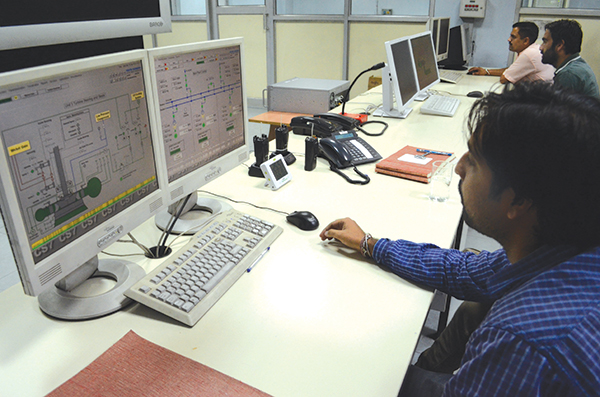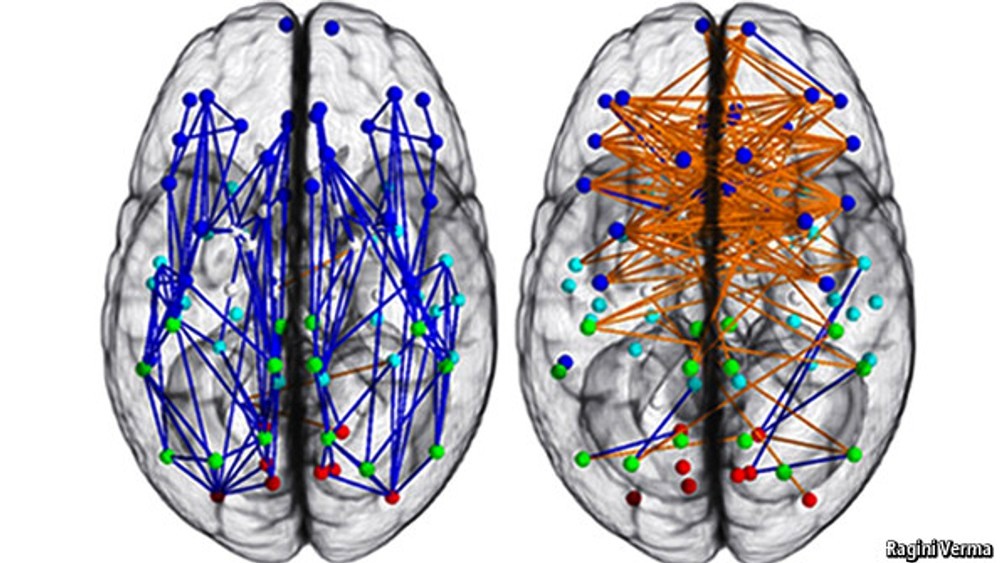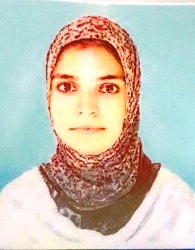by Dr Qudsia Gani
Einstein has said that computers are incredibly fast, accurate and stupid; humans are incredibly slow, inaccurate and brilliant; together they are powerful beyond imagination

Computing, Coding Stephen Hawking had once said: “Whether you want to uncover the secrets of the Universe or pursue a career in the 21st century, basic computer programming is an essential skill to learn.”
Computing is synonymous with counting and calculating. However, as a discipline, it is the study of algorithmic processes that describe and transform information. Computing means to write the programs to be executed by a computer or a network of them.
The designing and building an executable computer program to accomplish a specific computing result or to perform a specific task involves many steps such as: analysis, generating algorithms, profiling algorithms’ accuracy, resource consumption, and the implementation of algorithms in a chosen programming language (commonly referred to as coding).
What Is Programming?
Programming is a mix between art and science. It is technical and analytical, yet creative at the same time. Computers do amazing things from simple word processing and spreadsheet functions to completing millions of financial transactions a day and controlling the infrastructure that makes modern life possible.
But no computer can do anything until a computer programmer instructs it what to do. Those specific set of instructions is what computer programming is all about. Computer programmers use specialized languages to communicate with computers.

Computing is done while sitting in a cosy chair or taking a laptop in the lap making the leisure full of pleasure as also while working. It has a marvellous addiction. It is incredible to learn that programmable devices are not of a recent origin but have existed for centuries.
Ancient Programmes
In 1206, an Arab engineer Al-Jazari invented the programmable drum machine where a musical mechanical automaton could be made to play different rhythms and drum patterns, through pegs and cams. Similarly, a programmable music sequencer was invented as early as the ninth century, by two Persian brothers Banu and Musa, who have described an automated mechanical flute player in the Book of Ingenious Devices. Code-breaking algorithms have also existed for centuries.

In the Manuscript on Deciphering Cryptographic Messages dated the ninth century, the Arab mathematician Al-Kindi has described a cryptographic algorithm for deciphering encrypted code. He gave the description of cryptanalysis by frequency analysis which is the earliest code-breaking algorithm.
However, the first computer program is generally dated to 1843, when mathematician Ada Lovelace published an algorithm; to calculate a sequence of Bernoulli numbers, intended to be carried out by Charles Babbage‘s Analytical Engine.
Computers are not about computer sciences only, the way telescopes are about astronomy. These are much more than that. Computing is multipurpose, having scientific, engineering, mathematical, technological and social dimensions.
According to Bill Gates, “The computer was born to solve the problems that did not exist before. It is fair to say that personal computers have become the most empowering tools we have ever created. These are tools of communication, tools of creativity, and can be shaped by their user.”
The modern world is highly computerized and automated. Smartphones and modern cars are software-driven, so are the planes and aircraft we fly in. Our power grids and military establishments rely on software. The fuel pumps at our local filling station have a code on them.
Similarly, the cash registers where we pay for fuel or groceries will have a code. Unless we live in the rain forest there are examples of codes all around us.
Brain Versus Computer
Coding is defined by the ability to design, write, test and implement a model to solve a problem. If taught to kids in schools at an early stage, it can do wonders. It will necessarily enhance creativity as well as problem-solving skills in kids.

It is pertinent to mention that according to the computational theory of mind, the human brain seems to work much like a computer where the software of the mind drives the hardware of the brain. Notwithstanding some analogies, this approach would be rather too simplistic and is being countered on many grounds. The human brain is not just any network but a parallel arrangement of may neural nodes. In case of a not so serious injury, it can also rewrite its own network.
Our cognition improves by getting enough sleep and exercise. Mind believes what it wants to believe even in presence of opposing evidence. It seeks to look for evidence to confirm its own theories. A newborn has more than a dozen reflexes inherent in him/her such as turning head in the direction of something that brushes the cheek, sucking whatever goes in the mouth, holding breath when drowned in water and grasping things placed in the hands so strongly that can nearly support its own weight.
On the contrary, we are not born with information, data, rules, knowledge, lexicons, representations, algorithms, programs, models, images, processors, subroutines, encoders, decoders, symbols, or buffers – design elements that allow digital computers to behave somewhat intelligently. Not only are we not born with such things, we also don’t develop them either.

In these aspects, the computational theory falls flat in providing any explanation. This theory is merely a mathematical reduction of the brain and there has to be an alternative theory of mind that would necessarily involve a supernatural component. Though the computers sans the spark of spirit, love, passion, compassion or understanding, yet these robots have been very sincere friends of humans throughout.
Therefore Einstein says, computers are incredibly fast, accurate and stupid; humans are incredibly slow, inaccurate and brilliant; together they are powerful beyond imagination.
(The author teaches Physics at the Cluster University Srinagar. The opinions expressed in this article are those of the author’s and do not purport to reflect the opinions or views of Kashmir Life.)















